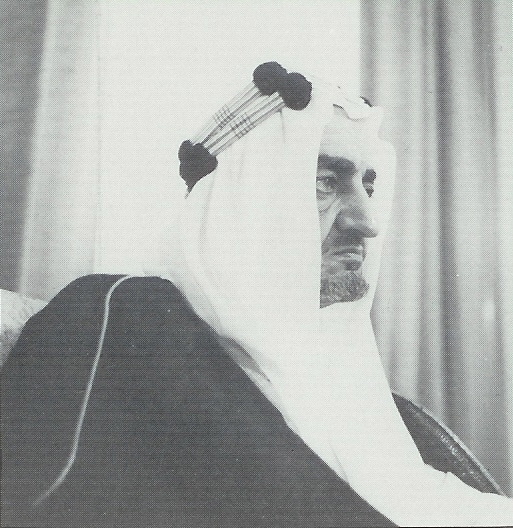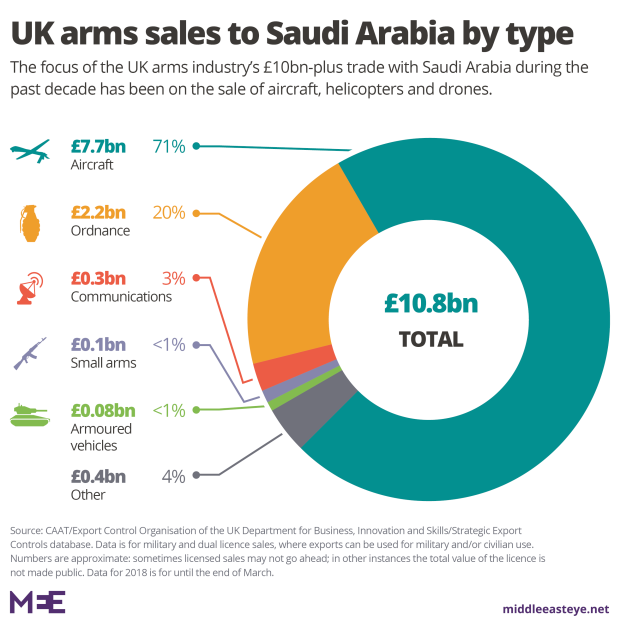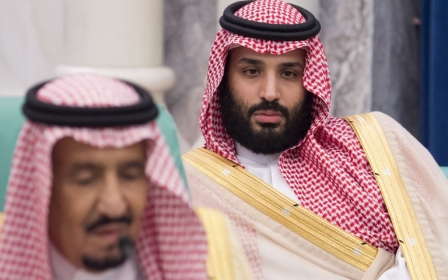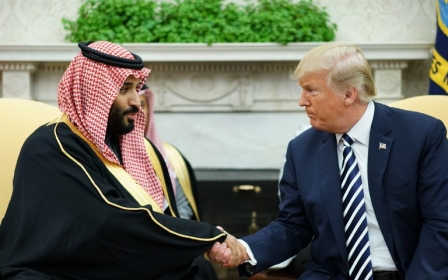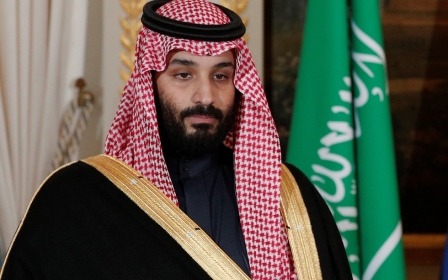Will the US and UK seek a palace coup against Mohammed bin Salman?
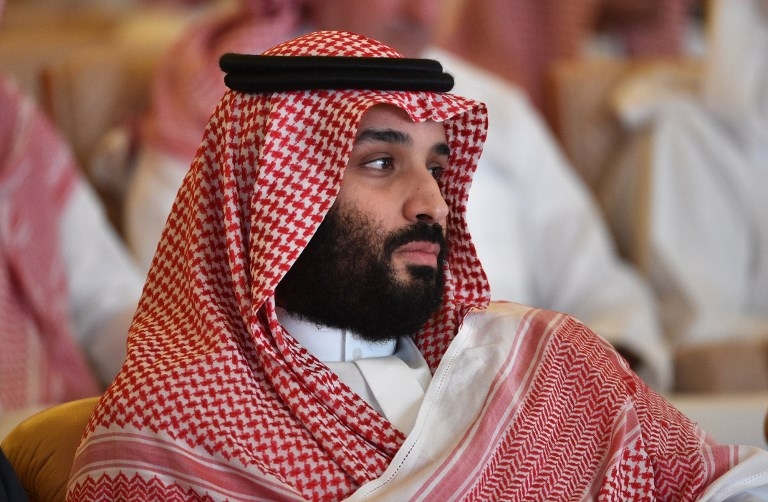
As Saudi Crown Prince Mohammed bin Salman (MBS) comes under increasing pressure over the killing of Jamal Khashoggi, policymakers in Washington and London have one overriding priority: to preserve the House of Saud, a military and economic ally in which they have invested so much. Yet, if Mohammed bin Salman cannot be retained, the UK and US will likely work to ensure some face-saving transfer of power to one of his relatives.
It has already been reported that members of the ruling family have begun discussing the possibility of replacing the crown prince. But there is also a little-known precedent for a Western role in the removal of a Saudi leader.
Promoting a palace coup
Declassified British files show that Britain previously covertly supported a palace coup in Saudi Arabia involving Mohammed bin Salman’s forebears in the House of Saud. The coup occurred as long ago as 1964, but has eerie echoes to the present. It helped then Crown Prince Faisal oust his older brother King Saud, who had ruled since 1953 and was backed by the British to preserve the House of Saud.
Faisal, like bin Salman now, had by the late 1950s become the real force in Saudi Arabia and was running the government. But in December 1963, King Saud attempted to reassert his power by deploying troops and guns outside his palace in Riyadh. A tense standoff with forces loyal to Faisal continued into 1964, when Saud demanded that Faisal dismiss two of his ministers and replace them with the king’s sons.
Britain backed the 1964 palace coup for a particular reason: it viewed King Saud as incompetent and opposed to introducing the political reforms necessary to keep the House of Saud from being overthrown
However, crucial support for Faisal was provided by the National Guard, the then 20,000-strong body responsible for protecting the royal family. The commander of the National Guard at the time was Prince Abdullah, who would later become king until his death in 2015, when he was succeeded by his half-brother, King Salman - the father of Mohammed bin Salman.
Who was the force then behind the Saudi Arabian National Guard? Then, as now, it was Britain, which had a military mission in the country following a Saudi request in 1963. The declassified files show that two British advisers to the National Guard, Brigadier Kenneth Timbrell and Colonel Nigel Bromage, drew up plans on Abdullah’s express wish for the “protection of Faisal”, “defence of the regime”, “occupation of certain points” and “denial of the radio station to all but those supported by the National Guard”.
Preserving the House of Saud
Britain backed the 1964 palace coup for a particular reason: It viewed King Saud as incompetent and opposed to introducing the political reforms necessary to keep the House of Saud from being overthrown. Frank Brenchley, the charge d’affaires in the British embassy in Jeddah, wrote that “the sands of time have steadily been running out for the Saudi regime”, the major factor then being the nationalist revolution in neighbouring Yemen and the intervention of Egyptian troops there, which challenged Saudi authority in Arabia.
Brenchley noted that, in contrast to Saud, "Faisal knows that he must bring about reforms quickly if the regime is to survive. Hampered everywhere by a lack of trained administrators, he is struggling to speed evolution in order to avert revolution".British training of the Saudi Arabian National Guard (SANG), including arms exports to it, was greatly expanded after 1964. Today, Britain has dozens of military personnel advising the SANG and a major project helping it with “communications”. The SANG’s role remains overwhelmingly focused on promoting "internal security" - that is, preserving the House of Saud.
The US has an even bigger training and “modernisation” programme for the SANG - worth $4bn - and is now more likely to play a similar role to that of Britain in 1964.
Echoes in Yemen
What also has echoes from the past is that in the mid-1960s, Britain was conniving with the Saudis in a war in Yemen that was as brutal as the present one. A popular coup in September 1962 by republican forces deposed the imam, Muhammad al-Badr, who had been in power for a week after the death of his father, a feudal autocrat who had ruled since 1948. The imam’s forces took to the hills and declared an insurgency, while Britain and Saudi Arabia soon began a covert war to support them that lasted throughout the 1960s.
The British establishment's fear was that the popular republican government in Yemen, backed by Nasser’s Egypt, would threaten the House of Saud and spread to the other British-controlled feudal sheikhdoms in Arabia. By the time the war fizzled out in 1969, the death toll might have been up to 200,000. Then, as now, human lives were seen as insignificant to London and Riyadh when compared with high policy.
The British-backed palace coup in 1964 also reinforced the role of Wahhabist ideology in the country. In March 1964, the Saudi religious leadership (the ulema) issued a fatwa sanctioning the transfer of power to Faisal as being based on sharia law; two days later, King Saud abdicated.
Reflecting on the coup, then British Ambassador Colin Crowe noted that “what may also be serious in the long-term” about the transfer of power to Faisal, “is the bringing of the ulema into the picture, and they may exact a price for their support”. His comments proved prescient as the alliance between Wahhabism and the House of Saud would go on to promote extremism, involving the backing of terrorist forces, in various places around the world.
The friend and ally
The British government has condemned Khashoggi’s killing and supports an investigation. But it is still referring to Riyadh as a “friend and ally” and emphasising its “important strategic partnership” involving the military and trade. But how likely is it that a Saudi leader with blood on his hands can really keep up the pretence to the Western public that things are improving in the region?
London and Washington will need a revolution in their thinking to become part of the solution rather than remaining part of the problem
London and Washington may end up preferring a repeat of 1964: to put another "Saudi" in power. Yet, much better for Saudis and the world would be something altogether different, as recently argued by Madawi Al-Rasheed: allowing people the experience of participating in government and decision-making, including freedom of speech, in a gradual transformation of Saudi Arabia into a democratic system.
In this, London and Washington will need a revolution in their thinking to become part of the solution rather than remaining part of the problem.
- Mark Curtis is a historian and analyst of UK foreign policy and international development and the author of six books, the latest being an updated edition of Secret Affairs: Britain’s Collusion with Radical Islam.
The views expressed in this article belong to the author and do not necessarily reflect the editorial policy of Middle East Eye.
Photo: Saudi Crown Prince Mohammed bin Salman attends the Future Investment Initiative conference in Riyadh on 23 October 2018 (AFP)
This article is available in French on Middle East Eye French edition.
New MEE newsletter: Jerusalem Dispatch
Sign up to get the latest insights and analysis on Israel-Palestine, alongside Turkey Unpacked and other MEE newsletters
Middle East Eye delivers independent and unrivalled coverage and analysis of the Middle East, North Africa and beyond. To learn more about republishing this content and the associated fees, please fill out this form. More about MEE can be found here.



